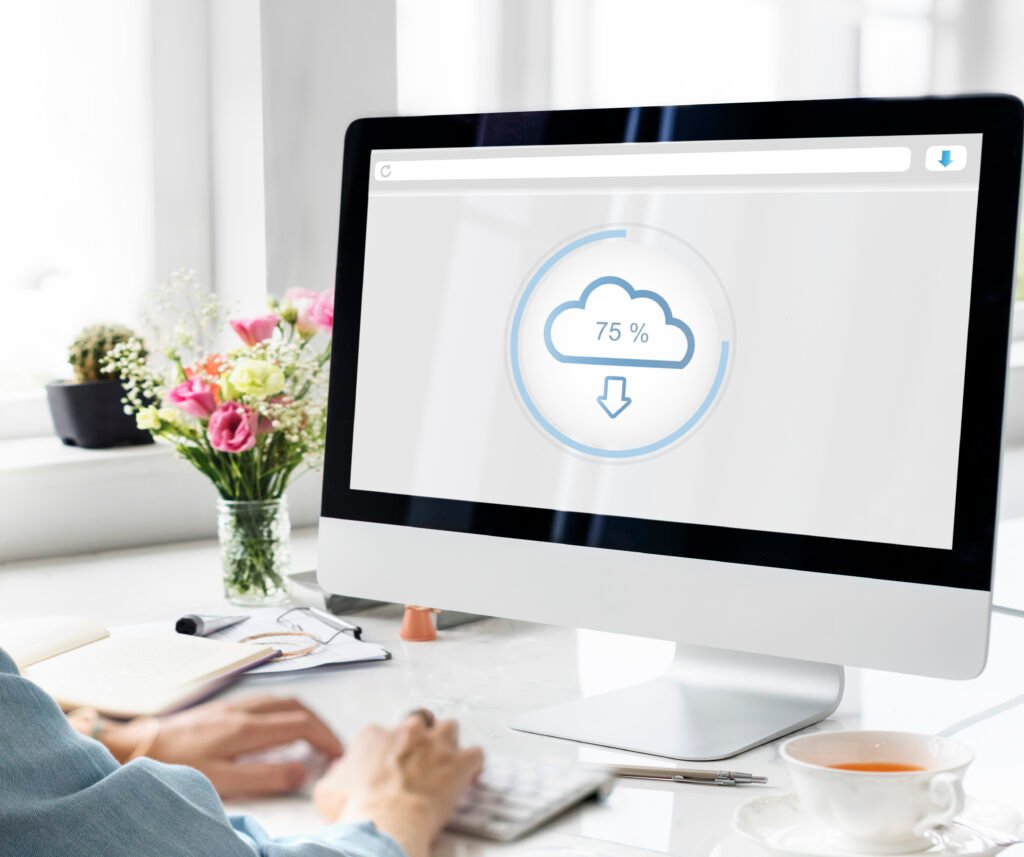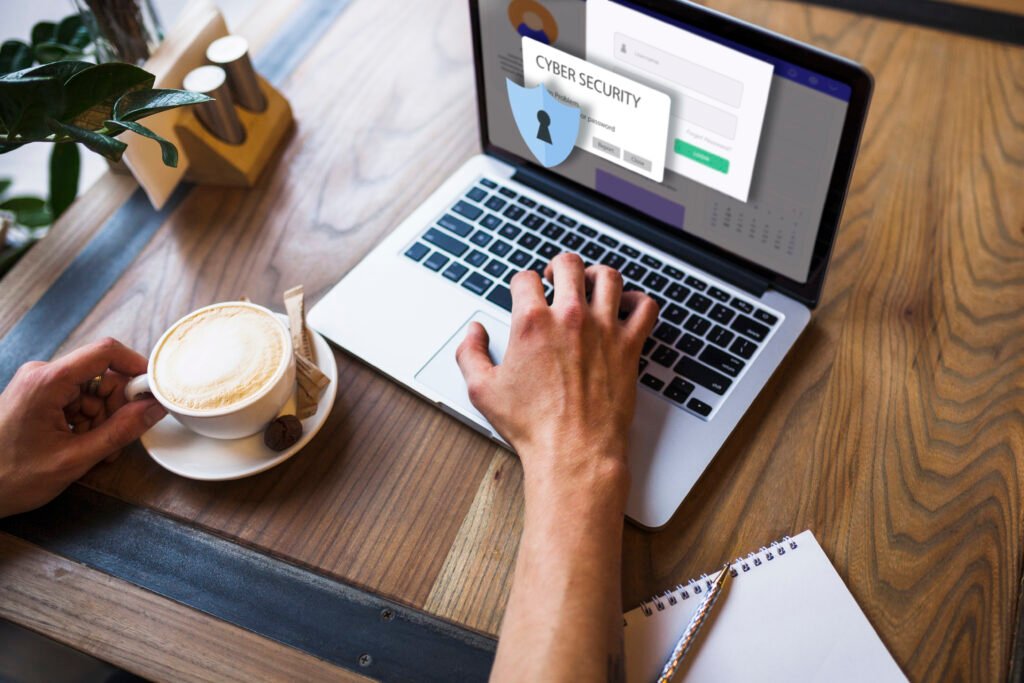Website security is the practice of protecting your website and its users from cyber threats, such as malware, data breaches, and cyberattacks. Website security is essential for any online business, as it can affect your reputation, revenue, and customer trust. A compromised website can result in loss of data, identity theft, fraud, legal liability, and damage to your brand image.
Therefore, it is crucial to implement effective website security features that can safeguard your website and its users from malicious actors. In this article, we will discuss the five critical website security features that every website owner should know and apply to their website. These features are:
- SSL Certificate
- Firewall
- Malware Scanner
- Backup System
- User Authentication
But before we delve into these features, I would first like to address a key issue.
Common Misconceptions About Website Security
Website security is a complex and dynamic topic that can be confusing and misleading for many website owners and users, and over the years we have seen many website owners have different misconceptions about their website security, some of which include:
- My website is too small or insignificant to be hacked: This is a false sense of security that many website owners have, thinking that hackers only target large or popular websites. However, hackers can target any website, regardless of its size or purpose, for various reasons, such as stealing data, spreading malware, or using it as a stepping stone to attack other websites. Therefore, every website needs to implement proper website security to protect itself and its users from cyber threats.
- My website is secure because I use a reputable web host or platform: This is a false sense of responsibility that many website owners have, thinking that their web host or platform will take care of their website security for them. However, web hosts or platforms can only provide a basic level of security, such as server security, software updates, and backup services. They cannot guarantee or control the security of your website’s content, functionality, or user interaction. Therefore, you still need to implement additional website security features to enhance your website security and prevent vulnerabilities and exploits.
- My website is secure because I use a password or a captcha: This is a false sense of protection that many website owners have, thinking that using a password or a captcha will prevent unauthorized access or misuse of their website. However, passwords or captchas can be easily bypassed, guessed, or cracked by hackers, using various techniques, such as brute force, phishing, or automated bots. Therefore, you need to improve your website user authentication to secure your website user accounts and data.
Critical Website Security Features Every Website Must Have
Feature 1: SSL Certificate
An SSL (Secure Sockets Layer) certificate is a digital certificate that verifies the identity of your website and encrypts the data transferred between your website and the user’s browser. This ensures that the data, such as personal information, credit card details, and login credentials, cannot be intercepted or tampered with by hackers.
An SSL certificate has many benefits for your website security, such as:
- Protecting user privacy and confidentiality
- Enhancing website credibility and trustworthiness
- Improving SEO ranking and visibility
- Complying with data protection regulations and standards
To obtain and install an SSL certificate, you should follow these steps:
- Choose a reputable SSL provider that offers different types of certificates, such as domain validation, organization validation, and extended validation, depending on your website’s needs and budget.
- Generate a certificate signing request (CSR) and submit it to the SSL provider, along with your domain name and other details.
- Validate your domain ownership and identity, as required by the SSL provider, through email, DNS, or HTTP methods.
- Receive your SSL certificate and install it on your web server, following the instructions provided by the SSL provider and your web host.
- Test your SSL certificate and ensure that your website is accessible via HTTPS, the secure protocol that indicates a valid SSL connection.
- Renew your SSL certificate before it expires, usually every year or two, to maintain your website security and avoid browser warnings.
Feature 2: Firewall
A firewall is a software or hardware device that filters and blocks unwanted traffic and requests from reaching your website. A firewall acts as a barrier between your website and the internet, allowing only legitimate and authorized traffic and requests to pass through.
A firewall has many benefits for your website security, such as:
- Preventing hacking attempts and unauthorized access to your website
- Reducing server load and bandwidth consumption by blocking malicious bots and crawlers
- Mitigating distributed denial-of-service (DDoS) attacks that aim to overwhelm your website with excessive traffic and requests
To set up and configure a firewall, you should follow these steps:
- Choose a web application firewall (WAF) that suits your website’s needs and budget. A WAF is a specialized firewall that protects your website from web-based attacks, such as SQL injection, cross-site scripting, and remote file inclusion.
- Install the WAF on your web server or use a cloud-based WAF service that operates as a proxy between your website and the internet.
- Customize the firewall rules and policies that define what traffic and requests are allowed or blocked by the WAF. You can use predefined rules provided by the WAF or create your own rules based on your website’s characteristics and requirements.
- Monitor the firewall logs and reports that show the traffic and requests that are filtered and blocked by the WAF. You can use this information to analyze your website’s security performance and adjust the firewall rules and policies accordingly.
Feature 3: Malware Scanner
Malware is malicious software that can infect and damage your website, such as by disrupting its functionality, stealing its data, or taking control of its operations. Malware can enter your website through various sources, such as outdated software, compromised plugins, weak passwords, or phishing emails.
A malware scanner is a tool that detects and removes malware from your website, as well as alerts you of any suspicious activity or vulnerability on your website. A malware scanner can also restore your website to a clean state, in case of a malware infection.
A malware scanner has many benefits for your website security, such as:
- Detecting and removing malware that can harm your website and its users
- Alerting you of any potential threats or risks on your website
- Restoring your website to a previous version, in case of a malware infection
To use a malware scanner, you should follow these steps:
- Choose a reputable antivirus or anti-malware solution that offers comprehensive and reliable protection for your website. You can use a standalone malware scanner or a plugin that integrates with your website’s platform, such as WordPress, Joomla, or Drupal.
- Install the malware scanner on your web server or use a cloud-based malware scanner service that scans your website remotely.
- Perform regular scans of your website, either manually or automatically, depending on the malware scanner’s settings and features. You can also schedule scans at specific intervals, such as daily, weekly, or monthly.
- Update the malware scanner and its database, as well as your website’s software and plugins, to ensure that they are up to date and can detect and remove the latest malware variants and threats.
Feature 4: Backup System

A backup system is a system that creates and stores copies of your website’s files and databases, either on your web server or in a remote location, such as a cloud storage service or an external hard drive. A backup system allows you to recover your website’s data, in case of data loss or corruption, due to malware, hacking, human error, or natural disaster.
A backup system has many benefits for your website security, such as:
- Ensuring data recovery and restoration, in case of a data loss or corruption
- Minimizing downtime and disruption, in case of a website outage or failure
- Reducing costs and resources, in case of a website rebuild or repair
To implement a backup system, you should follow these steps:
- Choose a reliable backup service that offers various features and options, such as backup frequency, backup size, backup location, backup encryption, backup compression, and backup restoration.
- Install the backup service on your web server or use a cloud-based backup service that backs up your website remotely.
- Schedule frequent backups of your website, either manually or automatically, depending on the backup service’s settings and features. You can also trigger backups on demand, such as before or after making significant changes to your website.
- Test the backup restore process and ensure that you can restore your website from a backup, in case of a data loss or corruption. You can also verify the integrity and validity of your backups, by checking their contents and formats.
Feature 5: User Authentication
User authentication is a process that verifies the identity and access rights of the website users and administrators, who log in to your website or access its restricted areas or functions. User authentication ensures that only authorized and legitimate users can access your website and its resources, and prevents unauthorized and fraudulent users from accessing your website and its data.
User authentication has many benefits for your website security, such as:
- Securing user accounts and data, by preventing identity theft, account hijacking, and data leakage
- Preventing unauthorized access and misuse, by restricting access to sensitive or confidential areas or functions of your website
- Enhancing user experience and satisfaction, by providing personalized and customized services and features to your website users
To improve user authentication, you should follow these tips:
- Use strong passwords, that are long, complex, and unique, for your website users and administrators. You can also enforce password policies, such as minimum length, character types, and expiration dates, to ensure password security and strength.
- Enable two-factor authentication (2FA), which requires an additional verification step, such as a code, a token, or a biometric, to log in to your website or access its restricted areas or functions. 2FA adds an extra layer of security and protection to your website user authentication.
- Limit login attempts, that restrict the number of times a user can try to log in to your website or access its restricted areas or functions, within a certain time. This can prevent brute force attacks, that attempt to guess or crack your website user credentials, by trying different combinations of usernames and passwords.
RELATED TOPIC: Why Website Security Should be a Priority for E-commerce Businesses
Other Crucial Website Security Features
Besides the five critical website security features that we discussed above, there are other vital website security features that you should also implement to enhance your website security, such as:
- HTTPS: This indicates a secure and encrypted connection between your website and the user’s browser and prevents eavesdropping, tampering, and spoofing of your website’s data and communication. HTTPS is enabled by installing an SSL certificate on your website as we explained earlier.
- Software updates: keep your website’s software and plugins up to date and patched, and prevent vulnerabilities and exploits that can compromise your website’s security and functionality. You should update your website’s software and plugins regularly, and remove any unused or outdated software and plugins from your website.
- Regular backups: This creates and stores copies of your website’s files and databases, and allows you to recover your website’s data, in case of a data loss or corruption. We discussed how to implement a backup system for your website earlier.
- Strong passwords: Use passwords that are long, complex, and unique, and protect your website user accounts and data from identity theft, account hijacking, and data leakage. We discussed how to use strong passwords for your website user authentication earlier.
Conclusion
In this article, we discussed the five critical website security features that every website owner should know and implement to protect their website and its users from cyber threats. These features are:
- SSL Certificate, that encrypts the data transferred between your website and the user’s browser
- Firewall, that filters and blocks unwanted traffic and requests from reaching your website
- Malware Scanner, which detects and removes malware from your website
- Backup System, which creates and stores copies of your website’s files and databases
- User Authentication, which verifies the identity and access rights of the website users and administrators
Website security is essential for any online business, as it can affect your reputation, revenue, and customer trust. A compromised website can result in loss of data, identity theft, fraud, legal liability, and damage to your brand image. Therefore, it is crucial to implement effective website security features that can safeguard your website and its users from malicious actors.
If you need any further assistance or guidance, please feel free to contact us at Effe Towers, and our team of professional website developers will be more than happy to help you with your website security needs.



